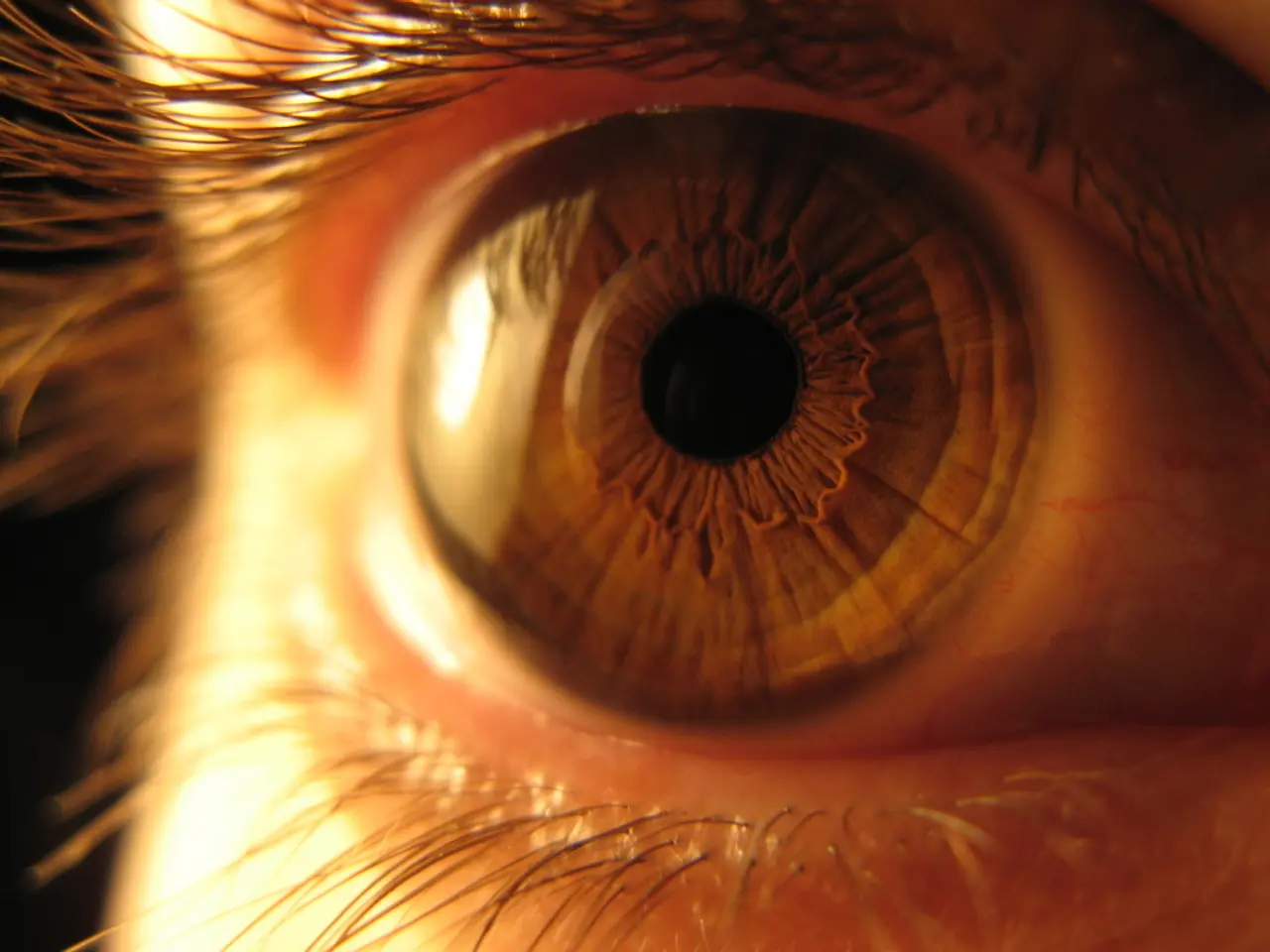Ectropion Explained: A Condition in Which the Eyelid Turns Outward
Ectropion, a condition characterised by the turning outward of the lower eyelid, can lead to discomfort, irritation, and potential vision problems if left untreated. This article explores the causes, symptoms, and treatment options for ectropion, as well as tips for maintaining good eye health.
Ectropion can occur due to aging, injury or trauma, medical conditions, scarring, and genetic factors. Symptoms include redness and irritation, excessive tearing, dryness, discomfort or pain, vision changes, and watery eyes. Risk factors include age, previous eye surgery, neurological conditions, chronic eye conditions, sun exposure, smoking, and genetic predisposition.
To keep the eyes lubricated and comfortable, using artificial tears can be beneficial. Aloe vera gel can also help reduce inflammation and provide moisture around the eyelids. For those suffering from allergies, managing them effectively can help prevent ectropion.
In mild cases, non-surgical treatments like lubricating eye drops, Botox injections, and the use of artificial tears, lubricants, and ointments can provide relief. For more severe cases, surgical interventions like blepharoplasty, canthoplasty, and skin grafts are often necessary.
Blepharoplasty, a common surgical treatment, involves the removal of excess skin and tightening of the eyelid to reposition it correctly. Canthoplasty, another surgical option, focuses on modifying and tightening the outer corner of the eyelid. Skin grafts may be used in complex cases where eyelid reconstruction is required.
Recovery times after ectropion surgery vary but generally involve initial swelling, bruising, soreness, and tightness around the eyelids, which typically improve within the first 1 to 2 weeks. Sutures are usually removed about 5 to 7 days post-op, and most patients can return to light or normal daily activities within 1 to 2 weeks. Strenuous activities or exercise are typically postponed for 3 to 6 weeks to ensure complete healing and reduce the risk of complications.
In addition to surgical treatments, maintaining good eye health is crucial. This includes washing hands before touching the face or eyes, removing makeup before sleeping, and keeping the eyelids clean. Regular follow-ups with an ophthalmologist to monitor the condition are also essential.
Protecting the eyes from sun damage by wearing sunglasses with UV protection when outdoors is vital for maintaining skin elasticity. Staying hydrated, aiming for at least 8 glasses of water a day, is another important factor in maintaining eye health.
Simple home remedies, such as using cucumber slices to hydrate the skin and provide a cooling effect, can also offer relief. It's important to avoid irritants like smoke and dust that can exacerbate symptoms.
Regular eye check-ups can help detect issues early on, reducing the risk of developing ectropion. Maintaining good eye health and protecting the eyes from injury can help ensure a lifetime of clear vision.
Ectropion can be caused by various factors such as aging, medical conditions, scarring, and genetic predisposition, and it can lead to discomfort, irritation, and potential vision problems. To prevent ectropion, managing allergies effectively, avoiding irritants like smoke and dust, and maintaining good eye health through regular check-ups and practicing proper hygiene (such as washing hands before touching the face or eyes and keeping eyelids clean) can be beneficial.




